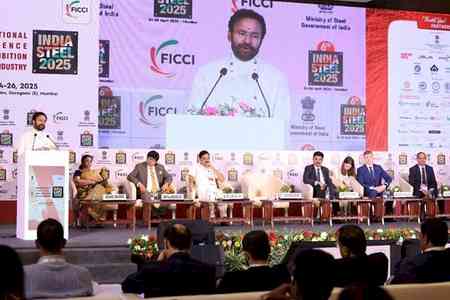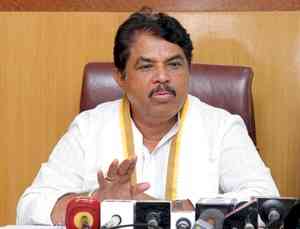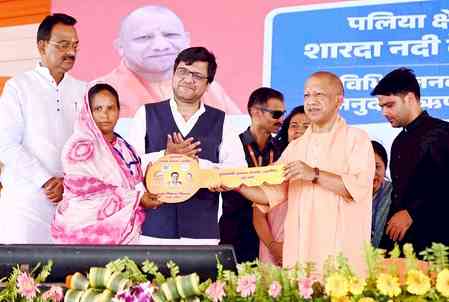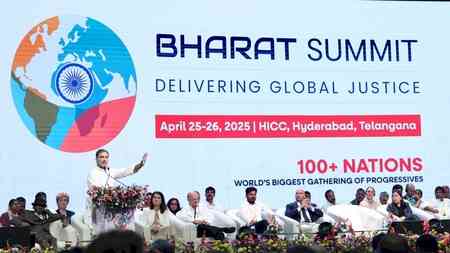Steel backbone of our economy, coal and mines strong foundation: G Kishan Reddy
Steel serves as the backbone of India's economic progress and a vital enabler of the national vision for ‘Viksit Bharat 2047’, Union Minister of Coal and Mines, G Kishan Reddy, said on Saturday.

Mumbai, April 26 (IANS) Steel serves as the backbone of India's economic progress and a vital enabler of the national vision for ‘Viksit Bharat 2047’, Union Minister of Coal and Mines, G Kishan Reddy, said on Saturday.
Addressing the 6th edition of ‘Steel India 2025’ here, the minister highlighted how India is setting new global benchmarks in infrastructure development, from the Chenab Bridge in Jammu and Kashmir, the world’s highest railway bridge, to the historic Pamban Bridge in Tamil Nadu — all made possible by the growing strength of the steel sector.
Every milestone in the nation's infrastructure journey, he remarked, is forged in steel — reflecting the momentum and aspirations of a Nation on the move.
Reddy further stated that India’s steel sector has grown at an impressive pace in recent years, positioning the country as the second-largest steel producer globally.
Citing the words of Prime Minister Narendra Modi, the minister referred to steel as India's "Sunrise Sector" -- a key driver of domestic consumption, industrial expansion and self-reliance through the Atmanirbhar Bharat Abhiyaan.
Reddy expressed confidence that through close collaboration between the Centre, state governments and industry stakeholders, India will not only meet its raw material requirements domestically but also emerge as a global leader in sustainable, self-reliant steel production.
He urged all participants at the conference to contribute actively to shaping policies that will secure a greener and more resilient future for the nation’s steel ecosystem.
The Union Minister emphasised that if steel forms the backbone of India’s economy, the coal and mining sector represents the strong foundation on which it rests.
He highlighted the importance of raw material security, especially in the context of the current session on Raw Material Strategy and the Shift in Raw Material Mix.
Ensuring the availability of critical raw materials like iron ore, coking coal, limestone, and essential alloying elements such as manganese, nickel, and chromium, he noted, is both an economic necessity and a strategic imperative.
India recently achieved a landmark milestone of 1 billion tonnes of coal production and dispatch in the last financial year — a transformative step toward national energy security.
While efforts to enhance renewable energy are underway, the minister reaffirmed that coal will remain central to India’s energy and industrial landscape in the foreseeable future.
Focusing on coking coal, a critical input in steel manufacturing, Reddy pointed out that it constitutes nearly 42 per cent of steel production costs. India currently imports around 85 per cent of its coking coal needs, rendering the industry vulnerable to international price volatility and supply chain disruptions.
The minister called upon private stakeholders to actively participate in washeries, beneficiation plants, and block auctions. Pulverised Coal Injection (PCI) trials using domestic coal have already shown promise for import substitution, and greater innovation in beneficiation can further improve outcomes.
The minister also emphasised the importance of timely utilisation of greenfield mines, as reiterated by the Prime Minister.


 IANS
IANS 










